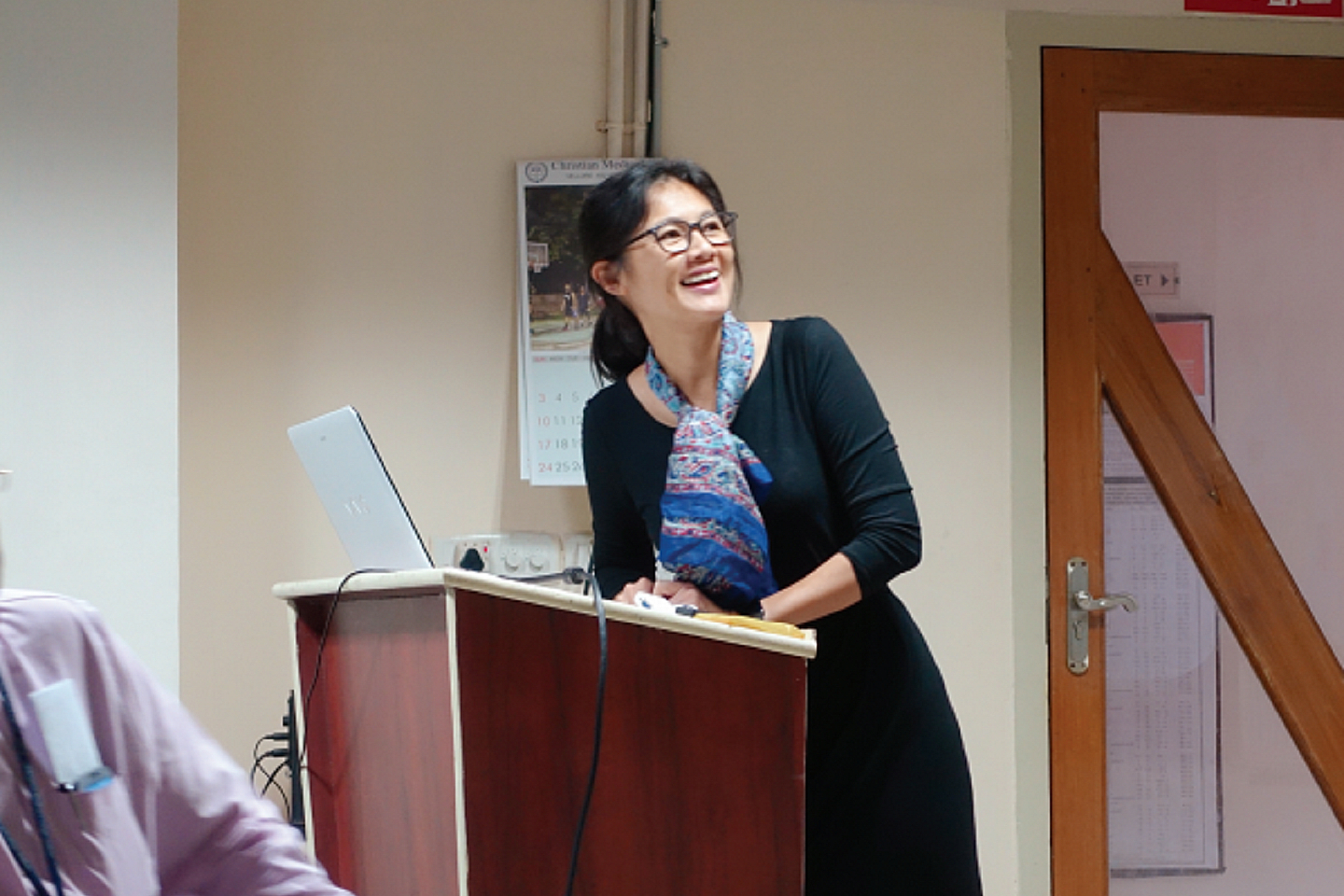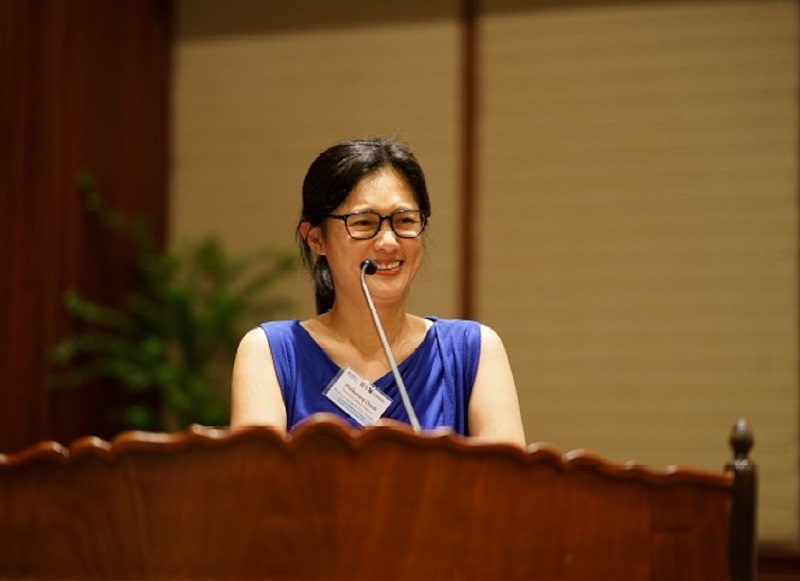
Cheah now leads research relating to the health of populations in a worldwide context (Photo: Phaik Yeong Cheah)
With a new position comes expectations. So yes, being a professor of global health means having to do more teaching, research and engagement with stakeholders, says Professor Cheah Phaik Yeong, who feels “honoured, humbled and overwhelmed” on being conferred the title by Oxford University last month. This Malaysian now leads research relating to the health of populations in a worldwide context.
Professors also have many other roles internationally, such as sitting on international committees, adds Cheah, a member of the World Health Organization’s Covid-19 research and development blueprint social science working group, and its task force on good participatory practices in emerging pathogens.
Oxford awards full professorships in recognition of impactful work that advances a certain field of research and teaching.
Cheah is the founder and head of bioethics and engagement at Oxford University’s MORU Tropical Health Network in Bangkok. MORU (the Mahidol Oxford Tropical Medicine Research Unit) was set up in 1979 as a collaboration between Mahidol University (Thailand) and Oxford, with funding from the UK’s Wellcome Trust. She had led its clinical trials support group for seven years. Before moving to MORU in 2007, she worked in Oxford University’s clinical trials and research governance office in the UK.
Bioethics is enabling because it changes the way scientists do their work. “When scientists understand and analyse ethical dilemmas related to their research, they will see it in a different light,” she says.
Born and raised in George Town, Cheah did her pharmacy degree at Universiti Sains Malaysia, followed by PhD in pharmaceutical sciences, also at USM. She obtained an MSc in bioethics in 2016 as part of the Erasmus Mundus programme. As part of her doctorate, she coordinated a multi-centre clinical trial on chronic prostatitis in Penang.
phaik_yeong_cheah_usm.jpg

“The study changed my life forever. That piece of work informed the treatment of chronic prostatitis. Good quality, ethical and well-designed research generates new knowledge no matter how small, and I was glad to be able to do that,” she says. “What I love most about being a researcher is that you are always in the ‘question everything’ mode.”
Basically, bioethics is the study of the ethical issues emerging from advances in biology, clinical research and medicine. The moral, social and legal concerns can range from informed consent to confidentiality, data privacy, patients’ rights and safety, assisted conception techniques, death and dying, and a growing host of concerns centred on human life and well-being spawned by developments in science and technology.
Informed consent is central to ethical research — it is both a moral and legal requirement in most jurisdictions, Cheah elaborates. People must be fully informed so they can decide if they wish to take part in a research project. This decision must be made voluntarily and without undue influence. Information, such as how data and samples taken from them will be used and stored, should be conveyed to participants in a way they can understand.
Good research is ethical, culturally appropriate, impactful and responsive to the health needs of the community it aims to serve, she adds. Engaging with and consulting the people can help embed their voices in research topics, priorities and procedures. Engagement with the public and stakeholders of the research also helps scientists disseminate the findings once a project is done.
MORU’s teams often partner with local stakeholders as that will ensure its research is relevant to the communities it serves. For example, it collaborates with the ministries of health, provincial health authorities, national malaria control programmes and local scientists for its malaria studies.
Cheah’s overlapping areas of work involve conducting much-needed health research ethically and responsibly with pregnant women, children and migrants and engaging communities and embedding their voices in projects for it to be ethical, relevant and responsive.
“I work with a diverse group of biomedical researchers in MORU who conduct international biomedical research, for example on malaria or Covid-19, with populations that have poor access to healthcare, and high rates of poverty and illiteracy. Many ethical issues have to be analysed and translated into practical action when we conduct research with these underserved communities.”
Most academics have autonomy on projects as long as these are according to the vision of the group. At MORU, the main aim is to improve the health and well-being of those in resource-poor settings. The unit has sister Oxford University tropical medicine hubs in Vietnam and Kenya.
“It does not matter where I am based because my work is international,” says Cheah, citing an ongoing 14-site trial in eight African and five Asian countries on the efficacy, safety and tolerability of a new combination therapy for malaria using existing drugs.
Another project, SEBCOV (social, ethical and behavioural aspects of Covid-19), involved 5,058 respondents from Thailand, Malaysia, Italy, Slovenia and the UK who were asked about the economic and social impact of the pandemic. In 2020, 86 in-depth interviews were conducted with members of the public in those countries (Slovenia did not take part). Most of the interviewees said Covid-19 measures had a negative impact on their lives: separation from family, friends and communities and grief over missed milestones; work-related challenges and income loss; and poor mental health and well-being. But there were inadvertent positive experiences, such as more time at home to focus on the family and oneself, and a sense of greater connectedness and shared humanity.
Western research ethics guidelines have evolved to protect “vulnerable groups” such as pregnant women, children and migrants and the economically disadvantaged from taking part in research. Although well-meaning, these guidelines have resulted in a lack of research in these populations, making them even more vulnerable primarily due to the lack of evidence-based medical care.
In many parts of the world, including Southeast Asia, bioethics is often narrowly understood and undervalued as “getting [the] ethics committee’s approval. In some of the countries we work in, because of the political system and history, there has been no culture of open debate on topics of research, science and ethics. Gatherings of people to discuss these topics are often viewed with suspicion or considered a political threat. Despite these challenges, my team conducted the first ethics research studies and engagement projects in these countries.
“Our research challenges the traditional group-based vulnerabilities and provides evidence-based context-specific guidelines on how to ethically include these and other underserved communities in studies that directly address their needs,” she says.
The ethical focus could include obtaining voluntary consent from a population with low literacy and making sure information given to them is understood.
Reluctance to take part in research projects or withholding personal information are obstacles scientists face. There are many surveys out there and some take too long to complete, she notes. People also worry about how data collected might be used. When medical procedures are involved, some communities fear providing blood samples. “Surveys should be short and only collect vital information to answer the research questions, and respondents should be anonymous.”
But there are those who are happy to participate, she adds. Migrant women on the Thai-Myanmar border approached for a qualitative study said they took pride in contributing to knowledge and wanted to learn more about their own health.
Cheah, 47, describes herself as a “true-blue Penangite” and remembers cycling to school and all over the place with her two siblings. Pre-Covid, she would return home three or four times every year, frequent the hawker centres and mamak stalls, and climb Penang Hill. “I’ve lost count of the number of times I have been up to Penang Hill or 84 [a popular rest area for hikers who set off from the Moon Gate at Botanical Gardens]. I haven’t done that lately, though.”
Trips home means spending time with old friends, family and her mother, Anna Cheah, The Star’s north regional associate editor before her retirement.
“Mum is a big influence, of course. She inspired me to be a go-getter, to work hard and not make excuses for not doing things.”
This article first appeared on Jan 17, 2022 in The Edge Malaysia.


